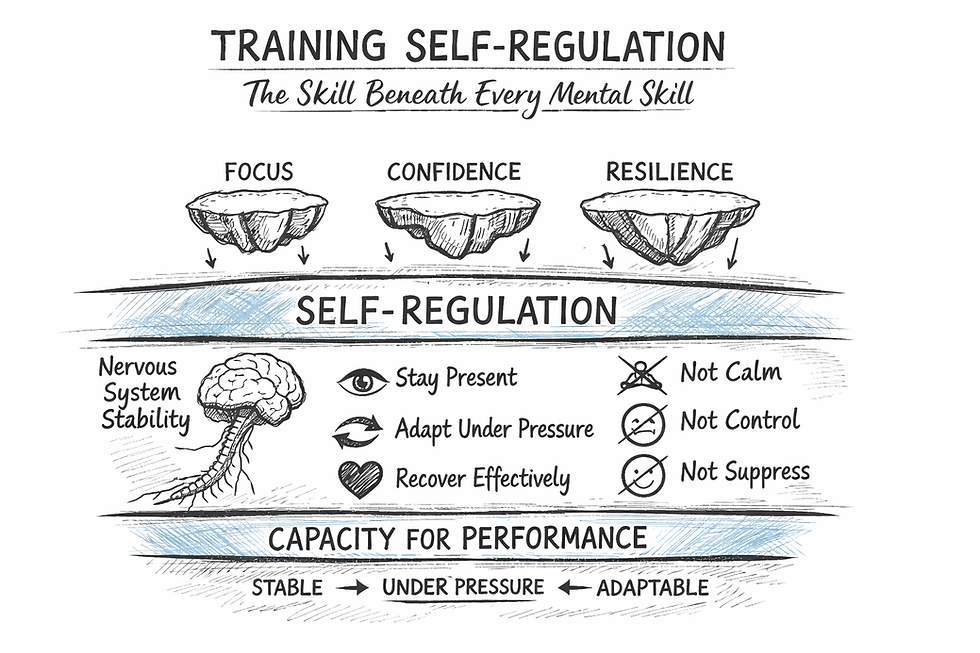The Power of Small Success: Building Lasting Inner Confidence
- Kate Allgood
- Nov 7, 2023
- 3 min read
Updated: Feb 6, 2024
In a world that often celebrates grand achievements and monumental victories, it's easy to overlook the profound impact of small successes on our journey towards building lasting inner confidence. As a mental performance coach, I've witnessed firsthand the transformative power that focusing on small wins can have on an individual's mindset and overall well-being. In this blog, we'll explore the significance of embracing and celebrating the seemingly minor triumphs that lay the foundation for a resilient and unshakeable inner confidence.
5 Reasons to focus on small successes
1.The Ripple Effect of Small Wins:
Imagine a pebble thrown into a pond, creating ripples that extend far beyond its initial point of impact. Similarly, small successes have a ripple effect on our lives. When we achieve a small goal or overcome a minor challenge, it sets off a chain reaction of positive emotions and reinforces our belief in our abilities. These small victories create a positive feedback loop, motivating us to tackle more significant challenges with confidence.
2.Building Momentum:
Success breeds success. Focusing on small wins allows us to build momentum gradually. Each accomplishment becomes a building block, strengthening our foundation for future challenges. The momentum gained from small successes propels us forward, making larger goals seem more achievable and manageable.

3.Shifting Perspective:
In a society that often glorifies major achievements, it's easy to feel inadequate when our goals don't match those lofty standards. However, by shifting our perspective to appreciate the small victories, we cultivate a mindset of gratitude and self-acknowledgment. This shift in perspective fosters a positive self-image, nurturing the growth of inner confidence from within.
4.Celebrating the Process:
Focusing on small successes encourages us to appreciate the journey rather than fixate solely on the destination. The process of setting, pursuing, and achieving smaller goals becomes a celebration of our efforts and progress. This mindset shift encourages a healthier relationship with success, emphasizing that it's not just about reaching the pinnacle but savoring the climb.
5.Cultivating Resilience:
Life is a series of ups and downs, and building lasting confidence requires resilience. Small successes serve as a buffer against setbacks, providing us with the resilience to bounce back from challenges. By acknowledging and celebrating small wins, we develop the emotional strength needed to navigate the inevitable obstacles on our path.
Conclusion
In the pursuit of lasting inner confidence, the journey is as important as the destination. Focusing on small successes is not about diminishing the significance of larger goals but recognizing that the path to confidence is paved with incremental achievements. As a mental performance coach, I encourage my clients to embrace and celebrate the small wins, for it is through these moments that true and enduring confidence blossoms. So, as you embark on your personal journey of growth, remember to acknowledge and relish the small victories — they are the keys to unlocking the resilient, unshakeable confidence that resides within you.
To your success,
Kate
Envision • Execute • Elevate
About: Kate Allgood is trained in the field of applied sport psychology. She holds two Masters degrees in psychology where she graduated with distinction. She has spent the past 14 years working one on one with high school, college, Olympic, and professional athletes to help them with their mindset, mental performance and mental skills training. Kate has also been a consultant for professional teams, including the Anaheim Ducks primary minor league affiliate the San Diego Gulls, to help the team and players develop their mental game. It is important to note that while Kate has graduate school training in applied sport psychology and general psychology, she does not diagnose or treat clinical disorders, and is not a licensed psychologist.
**The information provided is not to dispense medical advice or prescribe the use of any technique, either directly or indirectly, as a form of treatment for physical, emotional, or medical problems, without the advice of a physician. The information provided is only to offer information of a general nature to help you in your quest for high performance. If you know or suspect you have a health problem, it is recommended you seek your physician's advice.



Comments